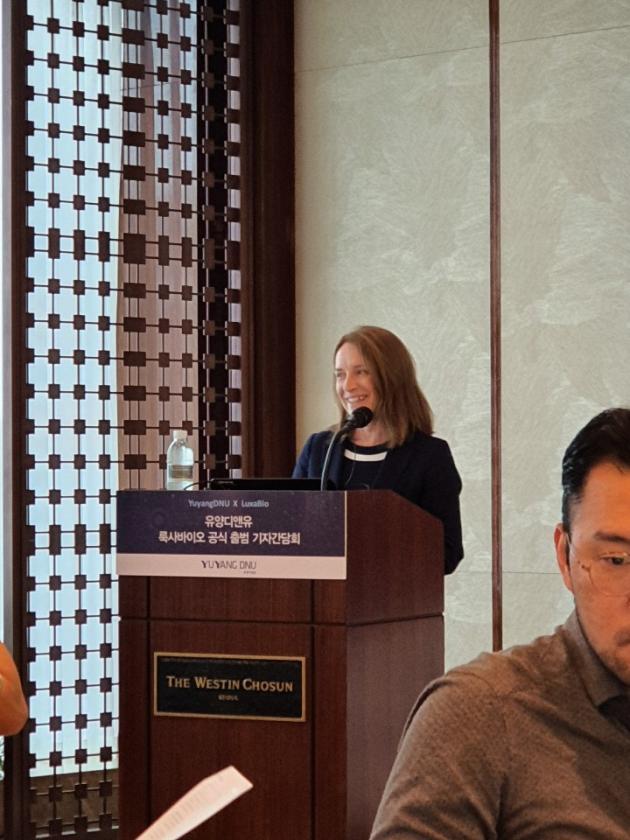Yuyang DNU and Neural Stem Cell Institute (NSCI), a U.S. NGO research institute, said they plan to develop a treatment for dry macular degeneration through their joint firm, Luxa Biotechnology.

The two sides announced their plans at a news conference to mark the launch of the joint venture on Monday.
Yuyang DNU said it is strengthening an open innovation strategy by acquiring bio-drug materials in their initial states through joint development agreements with major overseas universities and research institutes. The company is actively establishing a joint venture to speed up the clinical trials of promising new-drug materials.
Yuyang DNU CEO Park Il expressed his aspiration to make a new growth engine not only for the treatment of macular degeneration but also for the treatment of rare diseases.
"We are paying attention to rare diseases that do not have a fundamental cure," Park said. "The collaboration with NSCI is part of efforts to reach such goal by creating a foundation to license good items in the early stages, and pursuing open innovation through clinical partnerships."
There is currently only one treatment for wet macular degeneration, and the treatment for dry macular degeneration is not in the market and has a high unmet need, Park said, adding that his company plans to cooperate with NSCI in addressing such needs adequately.
Sally Temple, head of R&D at Luxa Biotechnology, also explained the research progress of the treatment.
"The drug we're working on replaces damaged cells by injecting retinal pigment epithelium (RPE) stem cells under the retina," Temple said. "This year, a preclinical study of animal models confirmed that the treatment improved vision and vision retention."
The company's RPE stem cell therapy is also safer as it uses the cells present in the eye and has higher efficiency, such as engraftment rate and vision improvement effect than competing products, she added.
Regarding why the company decided to team up with Yuyang instead of other more prominent multinational pharmaceutical companies, Temple avoided a direct answer, citing as reasons Korea's strength in biotechnology and Yuyang's potential and its strength in acknowledging innovation.
"We know that Yuyang appreciates our technology, so working with them provides the ability to get into the clinical trials more quickly and efficiently," Temple said. "We also see Korea as a technology powerhouse, and its moves to become a powerhouse in the biotech sector."
She went on to say, “We plan to use the synergy of the two companies in developing the new treatment, she added.

